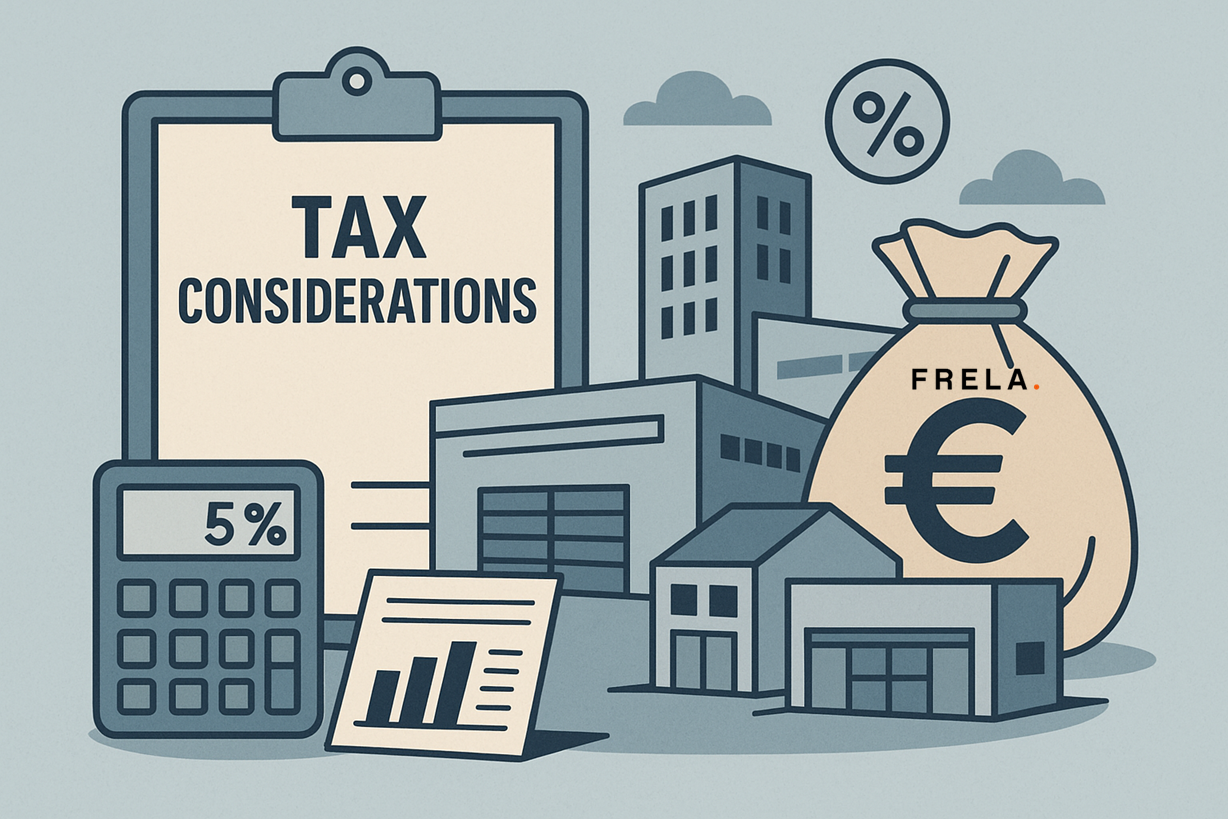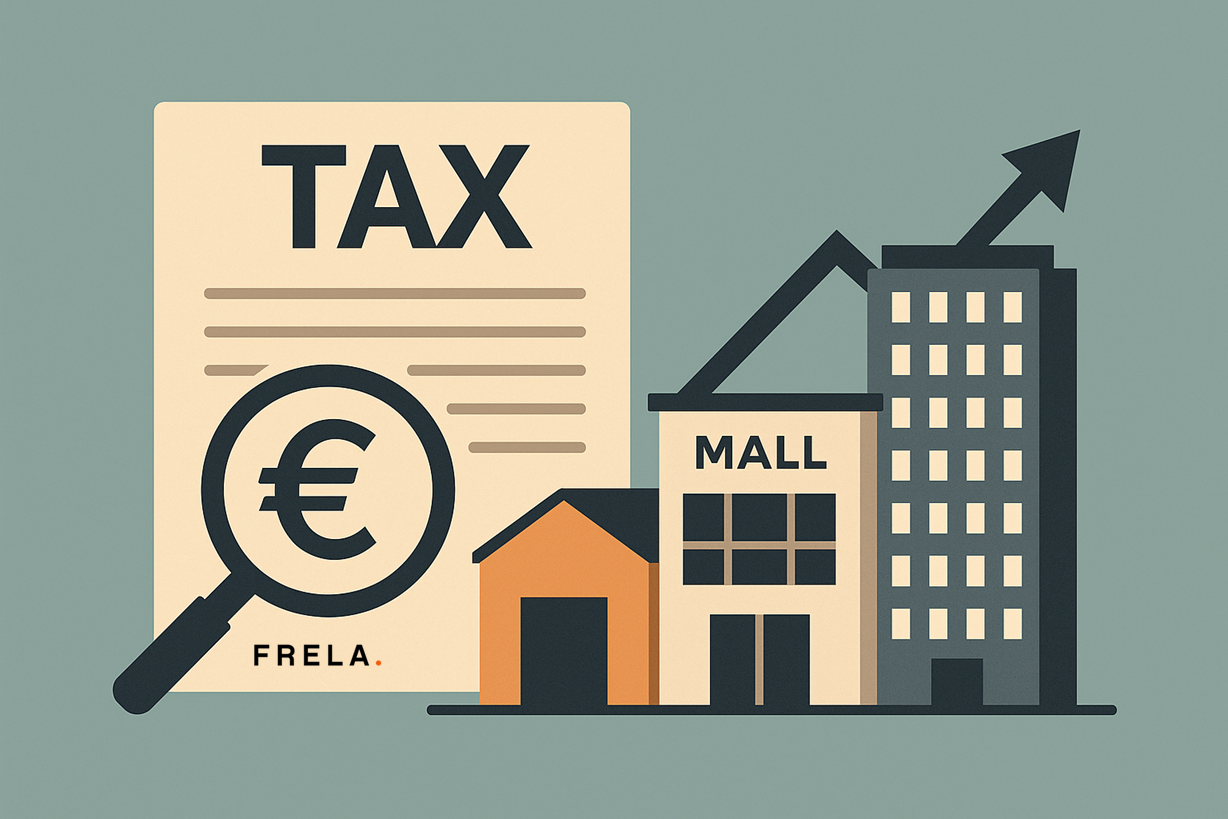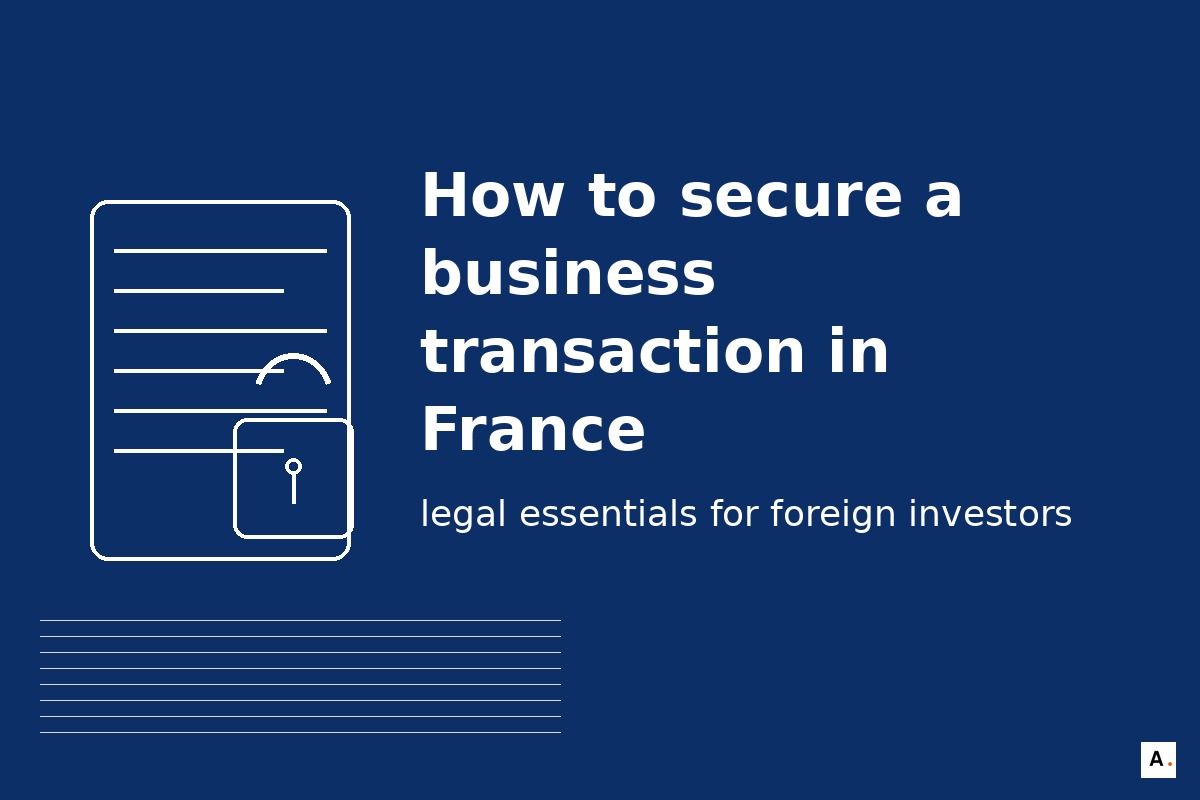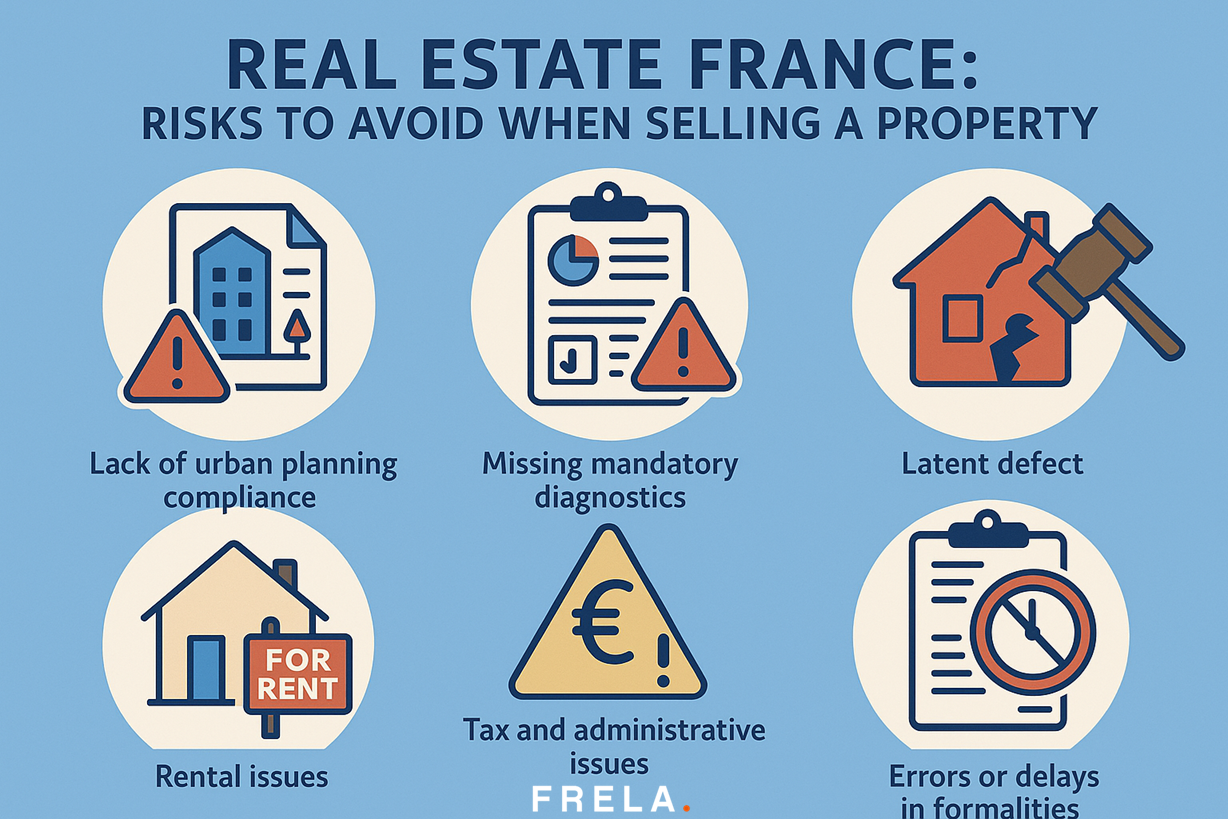Tax considerations in real estate-intensive acquisitions
Tax is a decisive factor when acquiring a French company with significant real estate. Both transaction taxes and ongoing tax implications must be considered, as well as the tax position of the seller and buyer:


Registration Duties (Transfer Taxes):
France imposes a transfer tax on the sale of company shares or real estate assets. In share deals, the tax is modest for ordinary companies (0.1% for shares of an SAS/SA, or 3% for an SARL interest beyond a small allowance). However, if the target is a real estate-rich company, French law levies a 5% tax on the share transfer to align with the tax that would apply if the real estate were sold directly. This 5% rate generally applies to non-listed companies whose assets consist of >50% French real estate. Buyers should thus evaluate the proportion of real estate on the target’s balance sheet: if it crosses that threshold, the acquisition of shares will be taxed at 5% of the share price. In an asset deal, transferring real property incurs a similar duty — typically 5.80% (in most départements) or 5.09% (in a few areas with lower departmental tax) of the property’s price, plus roughly 0.8% in notary fees. Notably, if the property is less than 5 years old (new building) and sold by a VAT-registered seller, the sale might be subject to VAT (20%) instead of transfer tax, but in practice VAT on real estate can often be recovered by the buyer if structured properly, and a reduced transfer tax (0.715%) applies in that scenario. The SPA should specify who bears these transfer taxes (usually the buyer by law, though parties can agree otherwise).
Corporate Tax on Capital Gains:
The seller’s tax situation will differ between share and asset deals, which can influence negotiations. In a share deal, the target company’s assets remain with it, so there is no immediate tax on any appreciation of the real estate at the corporate level. The selling shareholders might owe tax on any gain from selling shares – for corporate sellers, France has a participation exemption regime that effectively taxes only 12% of the gain at the normal rate (25% CIT), resulting in about 3% effective tax on the gain (provided the seller owned at least 5% of the shares for >2 years). Many foreign corporate sellers also benefit from double tax treaties that exempt them from French capital gains tax on share sales (except if the company is predominantly real estate; France often reserves the right to tax those under treaties). In an asset sale, however, the target company (the seller of the assets) will realize taxable gains on any assets sold. Any latent gains in the real estate (or other assets) are thus crystallized and taxed at the standard French corporate tax rate (25%) immediately. This is generally less favorable to the seller, especially if the properties have significantly appreciated or if the company has tax loss carryforwards that could be jeopardized by the transaction (French rules may disallow losses if the company’s activity changes due to an asset sale). As a result, sellers often demand a higher price in asset deals to offset their tax hit, or they may prefer a share deal. Buyers need to factor this into price negotiations.
Ongoing Real Estate Taxes:
Once the acquisition is complete, the new owner (via the company or directly) will be subject to France’s ongoing real estate taxes. The primary one is taxe foncière (annual property tax) on owned real estate, which will now effectively burden the new group. Additionally, if the company leases property from others, taxe foncière is often contractually recharged to the tenant. There are also local taxes like the CFE (cotisation foncière des entreprises) and CVAE that are part of local business taxation, typically not deal-breakers but part of the company’s tax profile. If the transaction is structured as an asset deal or triggers a legal reorganization, the buyer should be aware of a special 0.6% tax called the “taxe de publicité foncière” or a 3% contribution on certain real estate transfers in company restructurings, but these usually dovetail with the standard transfer taxes already discussed.
VAT Considerations:
Share sales are exempt from VAT in France. Asset deals may involve VAT if they constitute a sale of goods (e.g. a building sold by a developer within 5 years of completion is subject to VAT). However, many M&A asset transactions qualify as a transfer of a going concern (transmission d’une universalité d’actifs) which can be outside the scope of VAT if the business is carried on. Proper tax structuring can often avoid unrecoverable VAT.
Structuring for Tax Efficiency:
Foreign investors might structure the acquisition through a French holding company to optimize tax treatment (for example, interest on acquisition debt may be deductible in France under certain conditions, and dividends from the target can pass to the parent with participation exemption). If the target’s real estate is highly valuable, post-acquisition the group might consider restructuring ownership of those assets (e.g. an intra-group sale or contribution of properties to a specialized real estate affiliate). France allows tax-neutral reorganization under the EU Merger Directive (for instance, a merger or spin-off can be done without immediate tax on gains, if certain conditions are met). But caution: transferring real estate within the group post-acquisition may still trigger transfer taxes (the 5% duty) unless done via a merger or specific exceptions. There is an exemption for restructuring within a 100% controlled group, but it can be subject to clawback if the new owner is sold outside the group within a set period. Tax advisors should be involved in any such planning.
In summary:
Tax costs like transfer duties and capital gains can significantly impact the net price of a deal. They often tilt the choice toward share deals for real-estate rich targets, but each deal should be modeled for optimal outcomes.
About the Author :
Business lawyers, bilingual, specialized in acquisition law; Benoit Lafourcade is co-founder of Delcade lawyers & solicitors and founder of FRELA; registered as agents in personal and professional real estate transactions. Member of AAMTI (main association of French lawyers and agents).
FRELA : French Real Estate Lawyer Agency, specializing in acquisition law to secure real estate and business transactions in France.
Paris, 15 rue Saussier-Leroy, Paris
Bordeaux, 24 Rue du manège, 33000 Bordeaux
Lille, 40 Theater Square, 59800 Lille

This article is provided for general information only and may not reflect the most recent legal or tax developments. It does not constitute legal advice. Please contact us for personalised guidance before making any decision.




